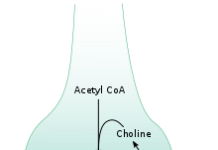Bowel obstruction, cancer, or an inflammatory bowel disease may require removal of part or all of the large intestine.
A colectomy is a procedure to remove part or all of your colon (large intestine).
The surgery is performed to prevent or treat conditions that affect the colon, such as:
- Colon cancer
- A bowel obstruction
- Severe bleeding of the colon
- An inflammatory bowel disease, such as Crohn's disease or ulcerative colitis
- Precancerous colon polyps
- Genetic conditions such as Lynch syndrome or polyposis
Sometimes, other procedures are required after a colectomy to reattach parts of your digestive system and allow waste to leave the body.
Types of Colectomy
There are at least four different types of colectomy surgery:
- Total colectomy (removal of the entire colon)
- Partial colectomy (removal of part of the colon)
- Hemicolectomy (removal of the right or left portion of the colon)
- Proctocolectomy (removal of both the colon and the rectum)
The procedure can be performed as a standard open colectomy (requiring a larger incision) or a laparoscopic colectomy (requiring several small incisions).
Discuss the different options with your doctor. In some cases, you may be able to choose which procedure is best for you.
The Colectomy Procedure
You'll be given general anesthesia during your colectomy, which means you won't be conscious.
If you're having a standard open colectomy, the surgeon will make a large incision in your abdomen and cut out all or part of your colon.
If you're having a laparoscopic colectomy, the surgeon will perform the procedure through several small incisions in your abdomen.
A tiny video camera is inserted through one of the incisions, and small surgical tools are placed in the other cuts.
Once all or part of the colon is removed, the surgeon will reconnect your digestive system in one of the following ways:
- Attaching the remaining parts of your colon together
- Connecting your remaining intestine to an opening created in your abdomen (colostomy or ileostomy)
- Connecting your small intestine to your anus
Before a Colectomy
Before your surgery, tell your doctor about any medicines you're taking. You might have to stop taking certain drugs before the procedure.
You may also need to not eat or drink for several hours before your colectomy. Your doctor will tell you if this is the case.
Your doctor may give you a laxative solution to mix with water at home and drink over the course of several hours before your surgery.
This will help empty your colon before the procedure. You may also be asked to use an enema.
Your doctor may also prescribe antibiotics before the procedure to help prevent infection.
Sometimes a colectomy is performed as an emergency procedure, so you may not be able to plan ahead.
After a Colectomy
After your colectomy, you will probably stay in the hospital for three to seven days.
You may not be able to eat solid foods right away.
In most cases, it will be about two to three weeks before you can resume your normal activities.
Risks From a Colectomy
A colectomy may lead to complications, including:
- Infection
- Internal bleeding
- Scar tissue
- Hernia (tissue bulging through abdominal muscle, especially under an incision site)
- Blockage of intestines
- Damage to nearby organs
- Blood clots
- A leak where the intestines are sewn together


Editorial Sources and Fact-Checking
- Colectomy; Mayo Clinic.
- Colectomy: Frequently Asked Questions; The University of Chicago Medicine.
- Colectomy; Johns Hopkins Medicine.
- Total Abdominal Colectomy; MedlinePlus.











































